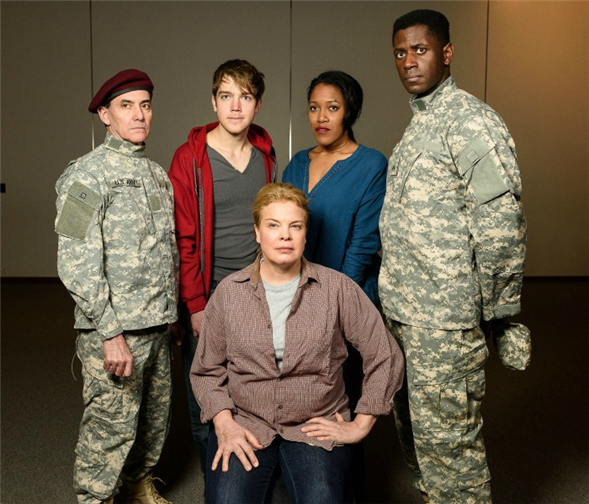Translate Page

Why Resonance Ensemble presents classics along with the new works they inspire
---
There are many practical reasons theatre companies opt to produce the classics. For instance, since they're in the public domain, there are no rights hassles, and with their built-in name recognition, selling tickets is (possibly) a little easier. But Resonance Ensemble has a compelling artistic motive for tackling plays by Shakespeare, Sophocles, Chekhov, and their celebrated brethren. Its mission is to mount new works alongside innovative stagings of the old shows that inspired them, so audiences can appreciate the palpable connection between theatre past and present.
For its 11th season -- dubbed The Language of Love -- Resonance is presenting Edmond Rostand's Cyrano de Bergerac in repertory with the world premiere of Ginger Lazarus' Burning at off-Off-Broadway's Theatre at St. Clement's. While the new play echoes Cyrano in many ways, it also addresses modern-day gender and sexuality issues. In the not-so-distant era of Don't Ask, Don't Tell, Burning's central romantic triangle involves a male soldier, a female civilian, and a former Army sergeant turned lesbian activist.
Resonance artistic director Eric Parness -- who runs the company with his wife, managing director Rachel Reiner -- is helming Lazarus' piece, and he says it was that show, not Cyrano, that initiated this double bill. "Burning originally came to us when we were wrapping our last season in 2013," Parness remembers. "I loved the play but the concept of doing Cyrano was a little daunting. It's revived on Broadway all the time, and I wondered if it made sense for us to do it. So Ginger's play went on the back burner until we were introduced to Gabriel Barre, the director, star, and co-adaptor of our Cyrano. It's not the traditional interpretation: It's musically driven and creates a very humble Cyrano to explore his feelings of insecurity and inadequacy, not just his bravado. As soon as Gabe and I started talking, Burning came back into my head."
{Image1}
In fact, Resonance typically starts with the new play when planning its season. Instead of picking an old show by reputation and commissioning the contemporary work, the company is interested in seeing which classics are organically speaking to today's dramatists. "There's only been two out of our 11 seasons when we began with the classic," says Parness. "Our first season, [Oscar Wilde's The Importance of Being] Earnest, and when we did Shakespeare's Henry IV Parts I and 2, titled H4. Usually, either a playwright already has an exciting work that fits in with our mission, or comes to me with a great idea they want to write."
Although each production is meant to stand on its own, seeing both is how audiences get what Parness calls the "full experience." While he doesn't insist that the shows directly influence each other, he asks the creative team for the classic to read the new play, so they understand the overarching concept. And there are natural thematic and aesthetic overlaps since both shows explore similar topics and share the same set and marketing materials. "I'm the crossover person," Parness explains. "I am actively involved in both productions, and I make notes about how they're resonating. And at every performance, I or a member of the company introduces the play and explains what we're doing."
And what they're doing is simultaneously making a classic relevant while spawning new work that speaks to the same timeless motifs. "I get really excited when we home in on a particular idea in a classic that the contemporary play uses to enlighten something important in today's society," Parness says. "Take this idea of Cyrano's insecurity -- which is core to the production that we're doing -- and the way it plays out in Burning, where it's not a physical deformity like his nose. It's a much deeper psychological damage as a result of discrimination and trauma. Our mission is, 'How do we take the universal ideas these classics tapped into to create new work that might be interesting hundreds of years from now?'"
---
Follow Raven Snook at @RavenSnook. Follow TDF at @TDFNYC.
Photos by Jon Kandel. Top image: the cast of Burning.
TDF MEMBERS: Browse our discounted tickets to theatre, dance, and concerts.